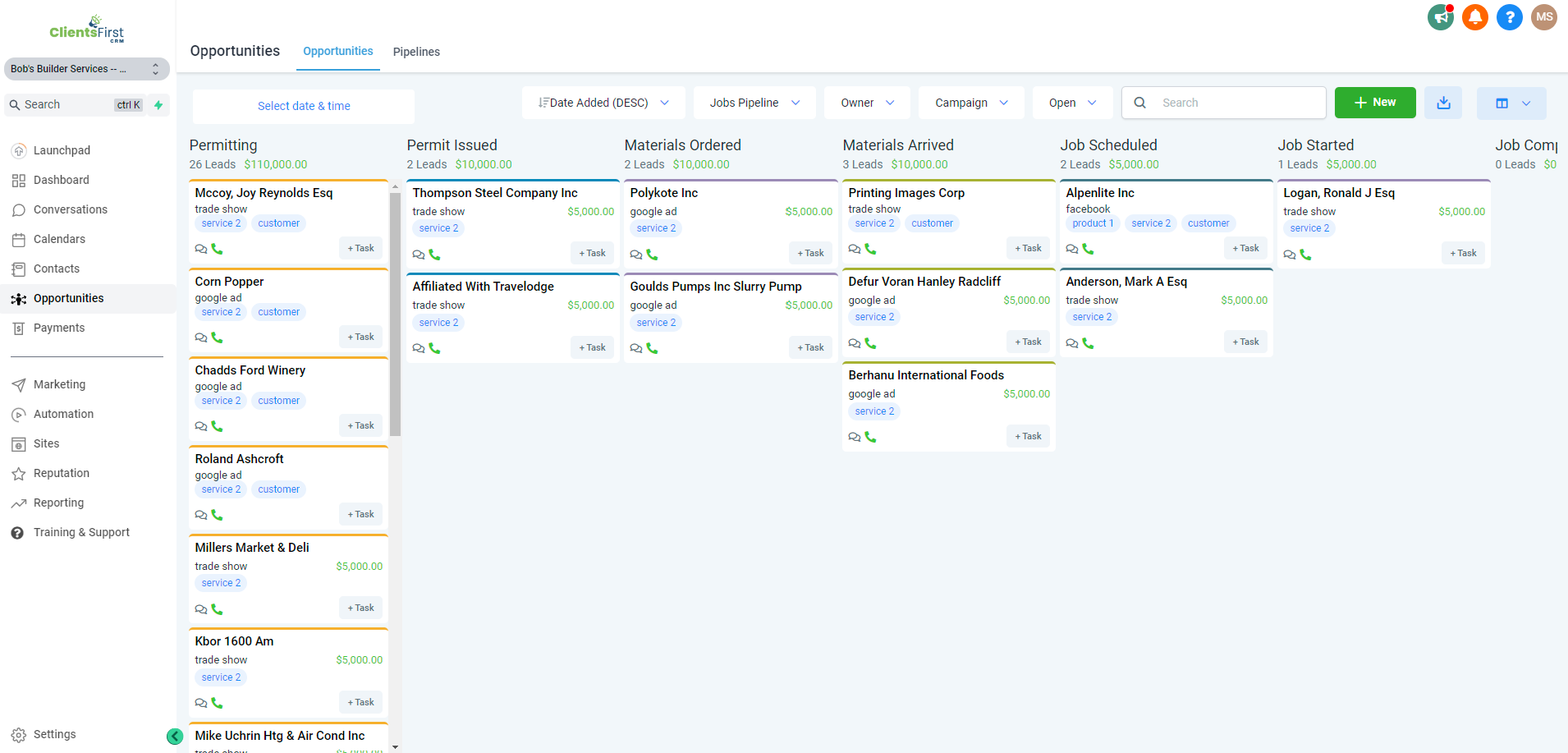Starting a business is a learning experience, even for serial entrepreneurs and side-hustlers. And no matter what your size or how long you’ve actually been in business it’s always productive to look back so you can catch up to where you want to be.
“We all miss something” said Mark Stephenson of ClientsFIRST Marketing. “I’ve been a part of a dozen startups and seen the inside of big and small companies alike, and every time you look you’ll see something new. Something you wish you’d done in year 1.”
Here are 5 things that many business owners WISH they would have known more about, and done more about, in their first year in business.
Cash Flow Management
If you’re financing commercial equipment, you probably already have some idea of the importance of cashflow management.
But many small businesses owners in particular wish they had a better handle on cash flow, budgeting and financing.
According to Investopedia, cash flow is the net amount of cash being transferred in and out of a company. Positive cash flow means that you have more coming in than going out at any particular time.
Keeping cash flow top of mind is vital to any business, but companies in the commercial embroidery, dtf transfer printing or wholesale custom t-shirt business make for an easy example of its importance.
That’s because when you receive a big order for printed t-shirts, for example, you will likely have to produce the entire order to get paid. And if the order is from a bigger company, they’ll typically only pay on 30 day terms or longer.
So, your cash OUT includes ordering the blanks and supplies. Those are almost never on terms, and typically a few days to a few weeks to come in.
And your cash IN is 30 days after you complete and deliver the order!
What happens to the bills you need to pay in the meantime?
That question is what you need to answer as an owner that pays attention to cash flow.

Build Relationships
Most surveyed wish they’d spent more time networking with other business owners AND their customers.
Many small business startups rely on their immediate circle of friends and family for their first customers, and then referrals from there. And while that’s great for an initial foundation, the more you want to grow the farther outside that small circle you’ll need to venture.
Establishing networking relationships early and finding new ones often will provide not just a steady flow of new customers, but people you can lean on for advice and expertise as you grow.
Here are a few places where you can start building those all-important relationships:
- Local Chambers of Commerce (there’s likely more than 1 in your service area)
- BNI – Business Networking International groups
- Meetup.com (just look for business groups)
- Facebook (Meta) – Many Facebook Business Groups based around a geographic area, like Dallas or Atlanta, have in-person meetings as well.
- SCORE – this is a nonprofit that offers business startup advice and can often be a source of great connections
Marketing Strategy
It’s not just strategy that many small business owners wish they’d developed sooner. It’s paying attention to marketing at all!
We already mentioned how many small businesses get their initial success from connections or word of mouth. When that first circle of influence is exhausted your business growth will be too unless you have other plans in mind.
This is one reason why law firms seem to add a never ending stream of new people to their nameplate. They recognize that the best way to get new clients is through referrals and connections, so to grow that way they the referrals and connections of NEW PEOPLE.

Another common occurrence is that a new business owner thinks the equipment+talent IS the business. That somehow just purchasing a direct to film printer will make the phone ring. Not so!
In both examples the business will do better if they have some other way to get new business other than referrals and connections – and that’s where marketing comes in.
Creating a marketing outline for your company may just consist of deciding choosing your product, being able to detail why someone should buy it and choosing a way to communicate that to your community.
Here are a few simple ones you might consider:
- Create an online presence – that a social media profile, website and a plan to contribute to both
- Start an email list – collect your potential clients’ emails and detail how you will communicate with them.
- Paid Advertising – this can be simple, like creating ads in local publications, or more complex by advertising on Google
Pro Tip: Fill out your Google Business Profile – it’s FREE!
Keeping Track of Customers (CRM)
A CRM system is a tool that helps small businesses keep track of all their interactions with customers.
It’s like a personal assistant for your business that helps you remember who you talked to, what you talked about, and what you need to do next. Or you can think about it as a combination of your email, whiteboard and that legal pad you keep on your desk for taking notes.
EXCEPT that it also has the ability to do things like:
- Automatically email or text message everyone who fills out a form or chats with
- Schedule ongoing messages to your current customers to let them know what’s hot, what’s on sale and what’s new with your business
- Automatically ask for referrals
- Keep all of your customer communications in one place, including texts, emails, appointments and phone calls.
All of this makes it easier for you to provide great customer service and keep customers happy. It’s like having a superpower that helps you build better relationships with your customers and make more money!
And some CRMs even have pipelines, or order process tracking built in. Like this one from ClientsFIRST Marketing

Work-Life Balance
It seems trite, but this is a key factor in both the success of a business and the impact that success has on the owners… and employees.
The concept of work-life balance is a significant concern for business owners, because it impacts both personal AND business success.
Here are a few expert tips…
- Maintaining Work-Life Balance
Set boundaries:
Especially when working from home, it can be challenging to separate work from personal life.
To maintain a healthy work-life balance, it’s important to set boundaries by establishing specific working hours and sticking to them. Create a schedule that allows you to work uninterrupted during the day and spend time with your family or engage in other hobbies and activities in the evening.
Or vice versa – set aside specific work hours in the evening if that fits your business model and your personal life better. The time of day isn’t important, the schedule is!
Delegate and outsource:
As a small business owner, you may feel the need to do everything yourself, but this can lead to overworking and burnout.
This is where outsourcing and delegation really become important. Consider things like hiring a virtual assistant or outsourcing accounting and bookkeeping services. Or using automation tools like your CRM to accomplish regular customer communications.
This allows you to focus on the core aspects of your business and have more time for yourself and your family.
Learn as you go
One of the most important lessons about starting, or growing a business that most entrepreneurs agree on is that you’ve got to set aside time to learn more about the business side of your business.
That’s marketing, operations, financing, etc – all of the things separate from the work at the heart of delivering the product or service that you sell.
Reading this was a good first step!




